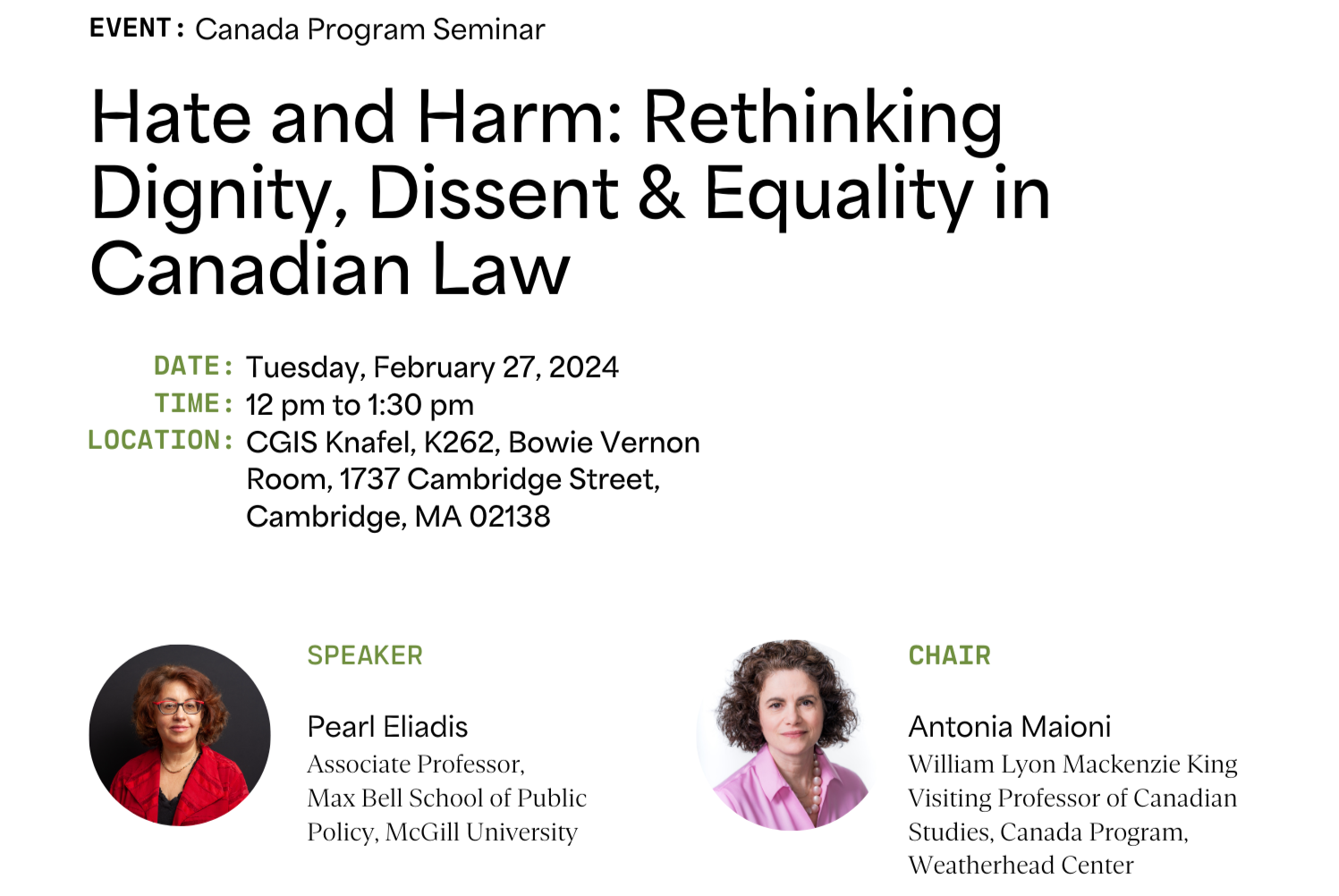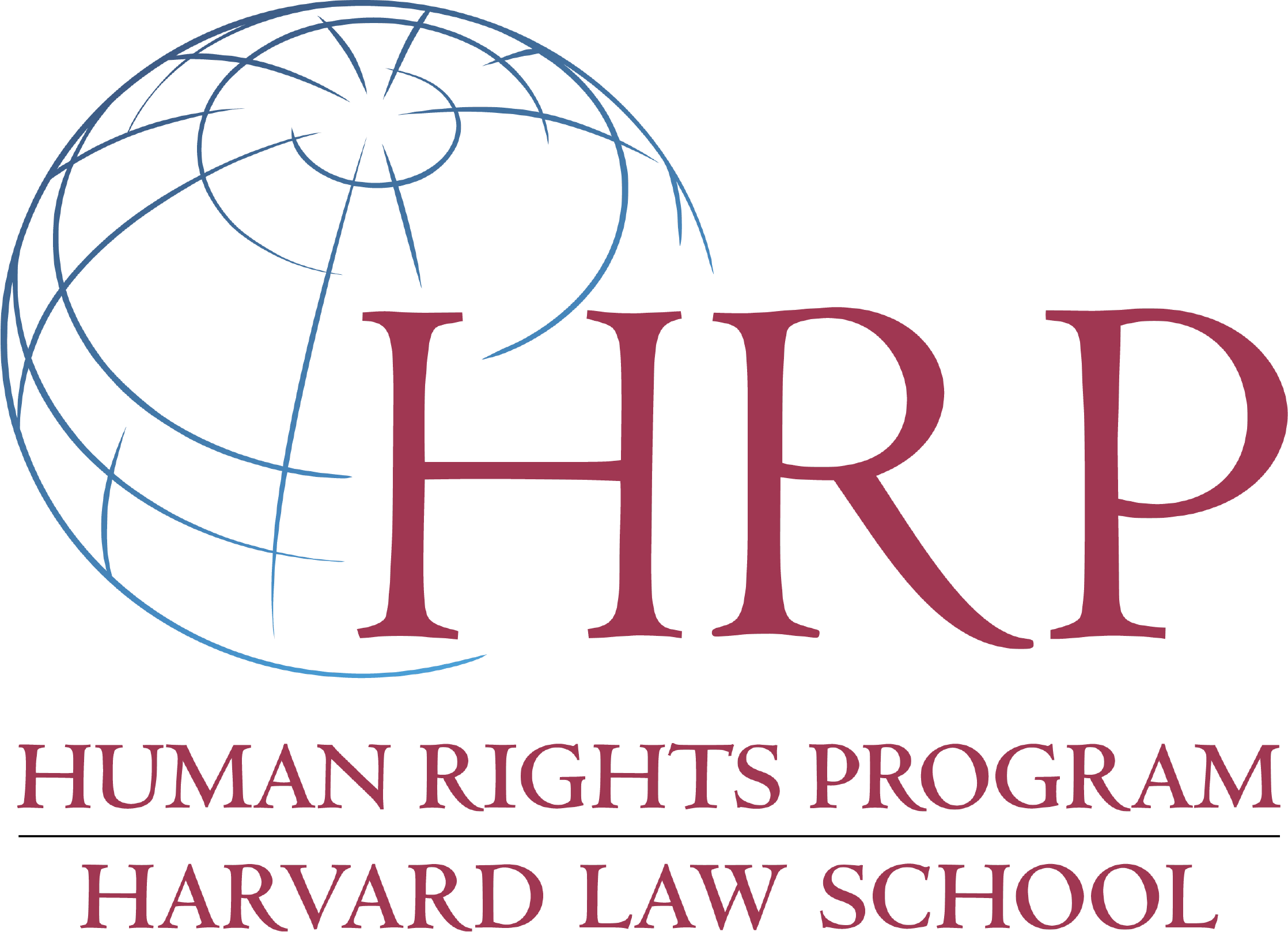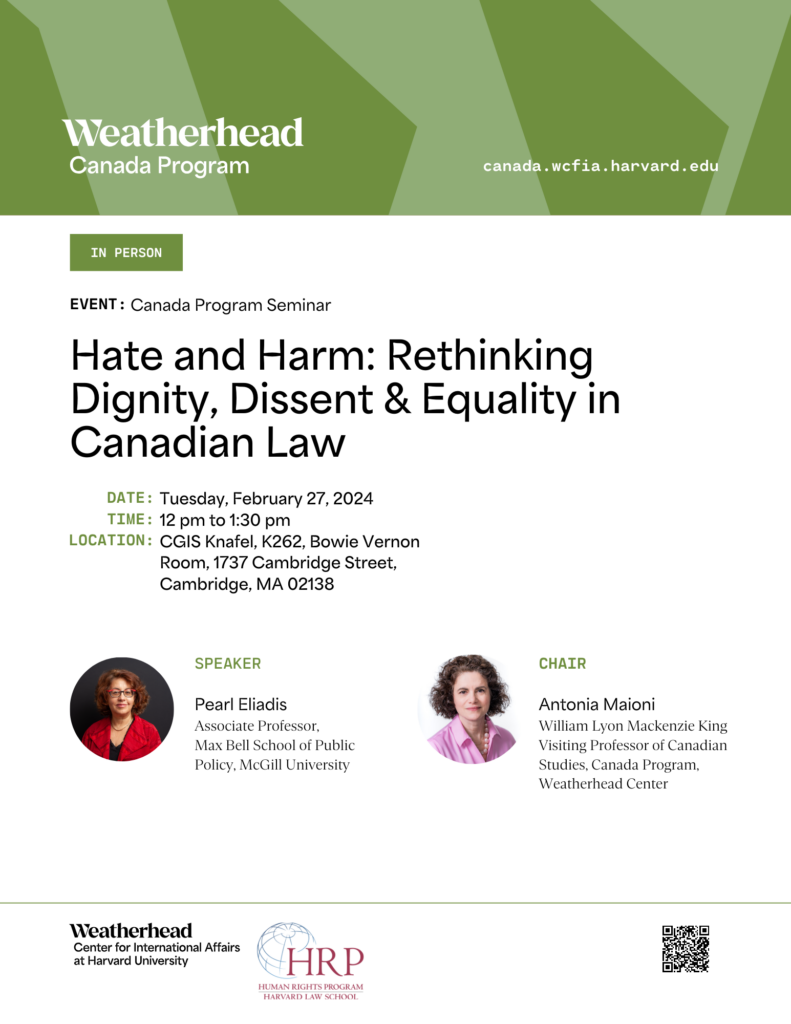
This event is part of the Canada Seminar of the Weatherhead Canada Program.
Speakers
Pearl Eliadis, Associate Professor, McGill University
Chair: Antonia Maioni, William Lyon Mackenzie King Visiting Professor of Canadian Studies and Professor of Politics, Science, and Public Policy, McGill University
Cosponsored by the Human Rights Program, Harvard Law School
In person. Light lunch served. Please register here to attend.
Pearl Eliadis is an award-winning lawyer, educator and author. She has 25 years of experience in human rights, national institutions, and democratic governance. Pearl has led global projects on law reform, access to justice and national institutions and has participated in human rights missions three continents. An Associate Professor (professional) at McGill University at the Max Bell School of Public Policy, Pearl also teaches a seminar on “Democracy and Dissent” at the Faculty of Law. She has a longstanding interest in the relationship between dissent rights and equality which was developed in her monograph Speaking Out on Human Rights (2015) and in the 2023 special edition of the Global Justice Journal which she guest edited.
Hate and Harm: Rethinking Dignity, Dissent & Equality in Canadian Law
Liberty, equality, and dignity lie at the core of human rights. In 2021, their relative importance was recalibrated by the Supreme Court of Canada in Ward v Quebec (Commission de droit de la personne et des droits de la jeunesse) 2021 SCC 43). Ward offers an opportunity to explore the impacts of the decision, especially for people with disabilities, 2SLGBTQI people, and religious and racialized minorities. The presentation will critically discuss the decision and its place in a series of SCC cases that have shaped the public commons in Canada.

